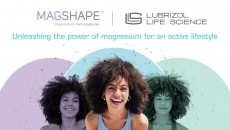Vitamin E produces paradoxical results on CVD, study suggests
negative effects in helping to beat the risk factors in
cardiovascular disease, an animal study has concluded.
Scientists at Southwest Foundation for Biomedical Research (SFBR), writing in the American Journal of Clinical Nutrition, said that research into the benefits of dietary antioxidants, such as vitamin E, has in the past brought up "controversial" results.
In this study they found that while vitamin E lowered "bad cholesterol", it showed the opposite for "good cholesterol."
The study, while adding to an increasing body of evidence linking vitamin E to heart health, also points to the effectiveness of dietary supplementation dependant on "individual characteristics."
Lead author Dr David Rainwater said: " What we found was that vitamin E had a significant effect on cardiovascular disease risk factors, but those effects went in opposite directions.
Some of the effects were positive, and some were negative.
"This leads us to believe that the discrepancies in human studies are due to which effect is emphasized in the group of people studied."
In the study 251 baboons were fed two diets, both high in fat and cholesterol.
The animals were then returned to a normal diet for seven weeks before feeding the same high fat diet, with 1000 IV vitamin E for a further seven weeks.
Blood samples were taken, and a panel of CVD risk factor traits, such as indicators of lipoprotein metabolism and oxidative stress were measured.
The baboons that consumed higher levels of vitamin E had lower levels of oxidized LDL cholesterol.
In this way vitamin E was shown to play a protective role, as oxidized LDL is believed to be a major player in terms of promoting atherosclerosis, the build up of fatty plaques in the arteries, and in cardiovascular disease in general, the researchers said.
In addition, vitamin E caused two "paradoxical effects" on HDL metabolism: higher apolipoprotein A-I (apo A-I) concentrations and lower HDL sizes.
Rainwater added that the decrease in HDL "good cholesterol" was bad, because "a decrease in the size of HDL particles is generally associated with an increase in atherosclerosis."
This observation is consistent with the mixed results of clinical trials for vitamin E and may help explain the controversial findings to date, they concluded.
In the past few years there has been considerable debate over the safety of vitamin E from the industry and media, much of which was spurred by a widely publicised meta-analysis at the tail end of 2004 that linked vitamin E with an increased risk of all-cause mortality.
The SFBR researchers also performed analyses to determine whether genes influences responses of CVD risk factor variable to vitamin E supplementation.
They noted that the proportion of cholesterol in HDL was "heritable."
They added that : "Ongoing experiments are under way to increase the number of animals available for analysis so that we may identify individual genes mediating the effects of vitamin E on CVD risk factors."
Demand for vitamin E has increased and is expected to grow over the next five years.
A report by Frost & Sullivan last year said the Western European vitamin E market saw revenues of around €72.4m in 2004.
It predicts that the market will grow by around €105m by 2011.
However, at the same time the cost of the vitamin has gone up - this month one of major supplier, DSM, said it would raise prices by 10 per cent because of "sharp increases" in raw materials.
Past studies have linked vitamin E to a host of health benefits, such as improving the function of the liver and thereby strengthening the body's defence system, as well as helping to protect against Alzheimer's disease.
It is also thought to have an anti-cancer effect.
Source: American Journal of Clinical Nutrition Vitamin E dietary supplementation significantly affects multiple risk factors for cardiovascular disease in baboons Authors: David Rainwater, Michael Mahaney, John VandeBerg, and
Xing Li Wang











